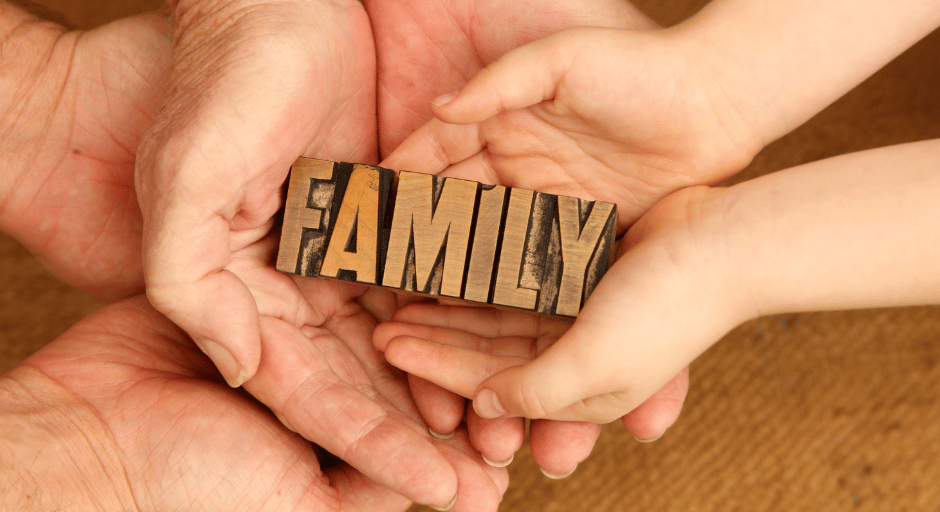Patchwork Families: Recipe for Success!
ENGLISH
5 min read


Combining two families is like cooking without a recipe: sometimes you get a masterpiece, sometimes total chaos, but you'll always remember something..! In the case of patchwork families with a touch of Eastern Europe and a pinch of British climate, the mix includes not only children and partners, but also languages, traditions, and even disputes about what actually constitutes a "proper breakfast.
Who's in charge here? Authority at the crossroads of cultures
When the traditional approach of "parent knows best" clashes with the British style of "negotiating conversations," things get interesting. Eastern European step parents in the UK often don't know how much authority they have, especially when dealing with children accustomed to more democratic family arrangements, calling aunts or dads by their first names...
Tips:
Talk with your partner (or ex-partner): agree on common rules, a united front. Best if they're clear and short, but shared by all children
Explain differences in approach (resulting from different cultures), instead of immediately enforcing them
Give children a voice - this might be new, but it works
Don't replace the parent - build your role as "plus one"
Family meetings with cake? Genius. Democracy + dessert
Money, Alton Towers and... new tires
Research from Migration Observatory suggests that Eastern European families more often save for a home, education and send money to relatives abroad. This can clash with the more hedonistic approach of a British partner or ex (hello, weekend at Alton Towers).
Tips:
No-taboo conversation about finances, spending, priorities, values
Joint and separate budget: "mine, yours and ours" accounts
Define what "big expense" means and how you decide about it
Don't forget about planning for the future
Worth checking out Sandwell Council Money Advice Service for more tips
The "second" parent who's still important
Parallel parenting can be a necessity - when you can't work together, you at least need to work peacefully. In the UK, co-parenting after divorce is the norm - but obviously, it's not easy.
Tips:
Communication? Information flow, like in any good company - polite and concrete approach
Consistent routines in both homes = less chaos for children
Never speak badly about the other parent in front of children! And report to them the need not to do this either
Maintain respect for the boundaries, mentality and role of each parent (including yourself!)
Rivalry 2.0: Step-siblings
New home, new people, new wars over the remote control. Especially if someone was an only child until now. Peace? It's possible, but you need to initiate it.
Tips:
Shared time and activities integrate (best something culturally neutral - cooking, board games)
Everyone should have their own space (a drawer counts too)
One-on-one time with each child = building bonds
Acknowledge emotions: jealousy and frustration are natural and make sure children are accepted in this
Give the child time
According to Dr. Lisa Doodson, patchwork children often feel torn between loyalty to their biological parent and the need to find their place in a new family. Add linguistic and cultural differences to this - and we have ready, though unnecessary, stress.
Tips:
Every, even small routine = stability and security
Active listening and acknowledging the child's emotions is key!
Slowly, without pressure - relationships don't come overnight
Support both cultures: language, holiday rituals, traditional meals - this gives children a sense of equality, belonging and promotes integration
Double adaptation
Research shows that immigrant families in the UK have difficulties adapting. Children must learn a new culture and a new school system, while at the same time dealing with changes in the family. Researchers say that this double challenge affects how well the family integrates and how relationships between family members develop.
Tips:
Practice compassion for yourself too - this is really important, though it can be difficult
At the start, look for bridges between cultures - shared values and traditions
Over time, invent/create new, family customs
Find people going through the same process for mutual support - local groups or online communities
Inheritance: Taboo topic, but important
Almost half of patchwork families don't update their will after entering a new relationship. This can later be a source of conflicts and uncertainty.
Tips:
Conversation and arrangements - better sooner than later
Consult with a lawyer - make a will and possible trusts
Regularly update plans after important life changes, like the arrival of a new family member or buying property
Grandparents and company
New grandparents, aunts and cousins can give children lots of love - but also confusion. It's worth managing these relationships with tenderness and clarity.
Tips:
Clear boundaries and main rules for both sides of the family
Gentle introduction to rules builds positive interactions
Celebrate diversity, support and family abundance!
Mental health - yours too
It's not just children who have it harder. Parents too - especially those trying to please everyone. Stress, guilt, tensions, additional responsibilities...
Tips:
Take care of yourself - daily, even a short walk, book, gym, whatever charges you
Invest in your relationship - happy partners = calmer home
Don't be afraid of support - check Sandwell Emotional Wellbeing Directory
Individual therapy? It's not a failure, it's an investment in stability
The best dish!
Every patchwork family can start with a honeymoon phase ("We'll all get along so well!"). Then the first friction appears and the whole house shakes. This is totally natural! Expect a rather bumpy road, embracing beautiful chaos more than creating perfect order.
Obviously, this isn't an ideal arrangement - but what family is? Yours, however, can be exceptional in its uniqueness, resources and complementarity. Especially when you find balance between British "let's talk" and Eastern European "because that's how it should be."
Optimism and good planning are your allies. But most important are the underlying love, mutual respect and willingness to experience ups and downs together.
Celebrate small victories. Even if it's just surviving another morning without tantrums. Every shared smile, every compromise and every moment of peace is a victory!
And remember - it should get better every day, as long as you choose the path of cooperation and love, not competition. And it's worth it, because your children will benefit, leaving home richer in experiences!
... because patchwork families are like a potluck dinner: you never know exactly what you'll get, but with a bit of creativity, a large dose of understanding and sense of humour - it could be the best meal of your life.
So here's to all patchwork parents! May your family be as strong as your coffee, as warm as grandma's hug and as stable as the family table, where of course everyone has their place.
Appendix: where to look for support?
Regardless of what challenge you're facing - parenting, relationships, legal issues or simply homesickness - these organisations are here for you:
Sandwell Family Information Service - place for free and impartial advice for families with children (from birth to adulthood), including those with disabilities. They help find childcare, activities, financial support and local social groups.
Family Information Service Hub - an online catalogue of local and national family services, where you can easily find specific forms of support tailored to your needs.
Sandwell Family Hubs - offer regular meetings, workshops and advice for families at every stage - from pregnancy to teenage years. Perfect place to meet people in similar situations and get tailored help.
Sandwell and West Birmingham NHS Trust - though primarily healthcare, this organisation collaborates locally to support families also in mental health and general wellbeing matters.
Sandwell Children's Trust - supports children and families in difficult situations, offers help in child protection, foster care, adoption and crisis interventions. Can also refer to other institutions.
Relate Sandwell - offers relationship counseling, family therapy and support for families. They help with communication problems, educational differences and building stronger relationships.
HRS Family Law/Baches Solicitors - local law firms specialising in family law, adoption and finances. Most offer free initial consultations, making it easy to get practical advice.
European’s Welfare Association, R.U.D.A. - organisations supporting Polish and Romanian communities, offering practical help, counselling and local integration.
Sources:
Doodson, L. (2016). Understanding patchwork families: A practical guide for professionals working with reconstructed families.
Migration Observatory. (2023). Migrants in the UK: An Overview. University of Oxford. https://migrationobservatory.ox.ac.uk/resources/briefings/migrants-in-the-uk-an-overview/
Family Lives. Reconstructed families: Advice for parents and children. Retrieved from https://www.familylives.org.uk/
Get the latest from our newsletter!
© 2025. All rights reserved
Website Terms | Privacy Policy | Accessibility | Do Not Sell My Information
Funded by




